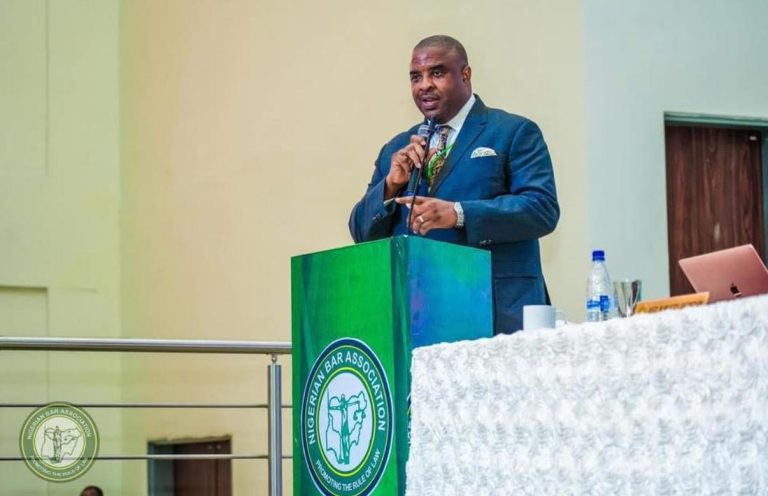Following the recent court ruling on access to NBA election materials, Tobenna Erojikwe has raised serious concerns about its implications for electoral transparency, accountability, and the integrity of future NBA elections. The judgment, which effectively restricts access to electoral materials, raises fundamental questions about whether the NBA’s constitutional provisions on post-election scrutiny can still be meaningfully enforced.
Erojikwe had sought the court’s intervention to compel the Electoral Committee of the Nigerian Bar Association (ECNBA) to release materials used in the 2024 NBA National Officers Elections, in accordance with the NBA Constitution. However, while the court agreed that the ECNBA is obligated to provide access to election materials, it held that such access is subject to the Data Protection Act, requiring the consent of all voters before their election data can be released.
For Erojikwe, this ruling sets a dangerous precedent. He argues that if every lawyer who participated in an election must personally consent before election records can be reviewed, NBA elections will no longer be subject to meaningful scrutiny. He likens this to a scenario where the Independent National Electoral Commission (INEC) refuses to release voter records in a national election, citing privacy concerns—a situation that would be deemed absurd in any democratic system.
Beyond the court’s decision itself, Erojikwe has called out the NBA for its role in the spread of misinformation following the judgment. He noted that reports falsely claimed that the court had dismissed his suit challenging the outcome of the election or that the ruling affirmed a candidate’s landslide victory—neither of which was the subject of the case.
Erojikwe pointed out that these misleading reports originated from the NBA’s official website, where the judgment was misrepresented. Many bloggers and media outlets simply reproduced the NBA’s version of events without verifying the actual court ruling. He described this as a deliberate distortion of public records, warning that such actions undermine the credibility of the NBA as a professional body.
He insists that the NBA must take responsibility for this misrepresentation and hold accountable those involved in spreading false information to Nigerian lawyers.
For Erojikwe, this issue goes beyond his personal case—it is about ensuring that the NBA adheres to its own constitutional principles. If the current judgment stands, future NBA elections could be conducted without any real possibility of independent review, making transparency a theoretical concept rather than an enforceable right.
As he prepares to appeal the decision, Erojikwe remains firm in his position: NBA elections must be transparent, accountable, and subject to scrutiny as required by its own constitution.
The legal profession in Nigeria now faces a crucial test—will the NBA uphold the fundamental values of fairness and integrity in its electoral process, or will this judgment create a system where transparency is effectively unattainable?




